We leave you the interview by Fr. Dário (provincial of Brazil) to our CLM couple from Guatemala, Ana Cris and Alejandro.
In it they present their missionary experience in Brazil.
(Interview in Portuguese)
CLM Brazil
We leave you the interview by Fr. Dário (provincial of Brazil) to our CLM couple from Guatemala, Ana Cris and Alejandro.
In it they present their missionary experience in Brazil.
(Interview in Portuguese)
CLM Brazil
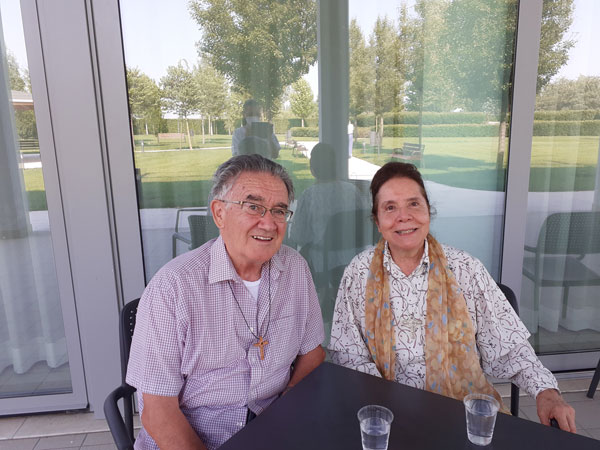
Fr. Francesco Pierli MCCJ and Sr. Teresita Cortés CMS share with us this reflection at the beginning of the academic year.
Dear Friends,
Let me take this opportunity of the approaching of the New Academic Year 2021-2022 to share few feelings anf few thougths with you. It is a great joy for me to be involved in this New Academic Year you are about to start. My mind goes back to the numerous years I was in Africa living with many of you the adventure of studying and researching together. If we are interested in succeding in whatever adventure we plugged ourselves into, it is important to shake hands with others. Beeing together it is God’s dream and an essential condition to be successful in whatever initiative we take. Fraternity and cooperation are two cornerstones of social ministry for social transformation from the very beginning. Let us continue to develop our passion and methodology for collaboration and togethernes men and women. Let us look at each other with appretiation and friendship. Our committment to collaboration assures God’s presence in our midst as Jesus clearly states in Chapter 5 of his Gospel.
Togetherness, mutual acceptance and collaboration are oustandig marks of social ministry meant for social transfomation of any environment. May yhe Holy Spirit grant us all, new joy and fraternity ever more. Fraternity is needed all over the world, and so as well for us to start anew in the new conditions we come to the University now.
I am aware of the hardships you are undergoing, both students and lecturers, in this time of global planetarian health crisis, due to the Coronavirus pandemic and othe catastrophies. I also had my part in times of isolation, loneliness and lack of socialization; not being allowed „to shake hands“. But now, let us be united and build anew our relationships. That would will be the way to grow stronger and we will regain hope and trust in a better future for our beloved Kenya and for the world. May the Holy Spirit show us ways to build bridges among individuals, families and nations and to sow the seed of collaboration. This hign value I am insisting about, is one of the strongest objectives of social ministry while bringing different ethnic groups, different religions, any diversity among cultures together. Especially bringing men and women together, according to the indication of God’s Word, according to the social teaching of the Church, becoming bearers of this new vision of Social Transformation which means to overcome even the old fashioned apostolic style where only men were supposed to be in leadership. I do not believe in a Kingdom of God built only by men; they alone do not generate life. New life comes only through „team spirit“ where men and women with equal dignity and mutual respect and understanding creatively generate the Social Transformation. This is already your Movement for Social Transformation….!!
I invite you, to look attentively and with contemplative eyes, at the picture which is at the apse of the main Hall at the Tangaza University College which shows how our equal footing, together male and female, create and bring equilibrium to God´s Creation. Let us start this Academic Year with „team spirit“, with joy, with new courage and new hope.
Thank you and be reassured of my daily prayer for each one of you.
Fraternally, Prof. Fr. Francesco Pierli MCCJ LTh. Sr. Teresita Cortés Aguirre CMS
The Comboni Lay Missionaries in Ecuador received on August 31, 2021, the visit of the Provincial Continental Referent of the CLM, Fr. Ottorino Poletto MCCJ, who taking advantage of his coming to Guayaquil, wanted to have a small meeting with our community.
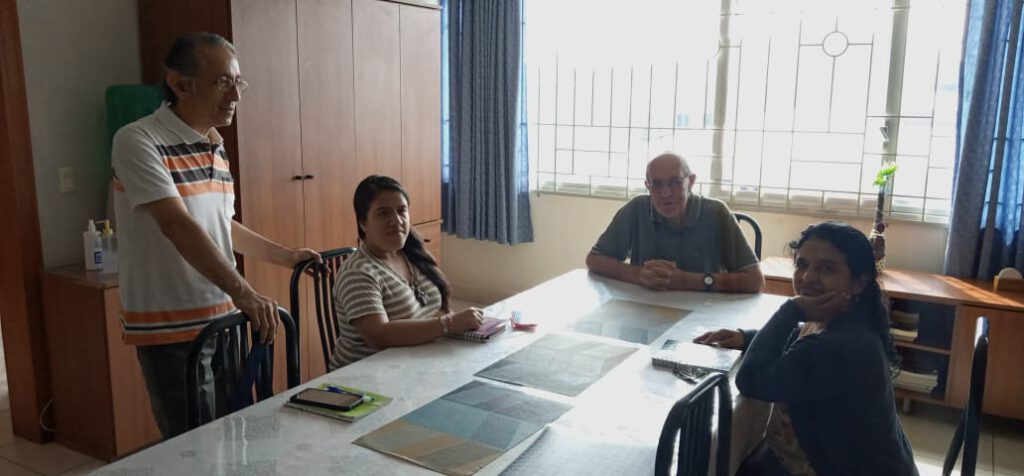
After updating us on personal news and telling us about his visit to Mexico, he made us the proposal to have as CLM in Ecuador a place of mission, where we can establish ourselves and work in unity offering missionary service to the communities in the areas of education, health and other specific pastoral areas, taking into account our personal, professional and missionary reality. This initiative of leaving our zone can be a motivation for the new members of the lay community.
It was also a good opportunity to clear up doubts and above all to encourage us in the formation projects to get new members for the CLM, which we have taken up again with the help of our local reference person, Fr. Joseph Ng’ang’a, MCCJ, since July of this year.
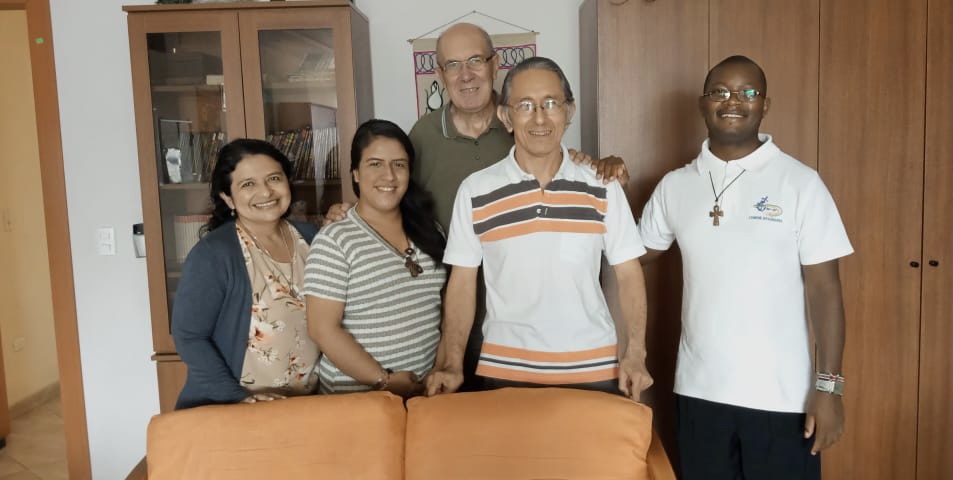
We hope that St. Daniel Comboni will accompany us on this journey and help us to make the best decisions in order to be able to fulfill and become the place of mission for our CLM community in Ecuador.
Abg. Susana Ortega Delgado, CLM
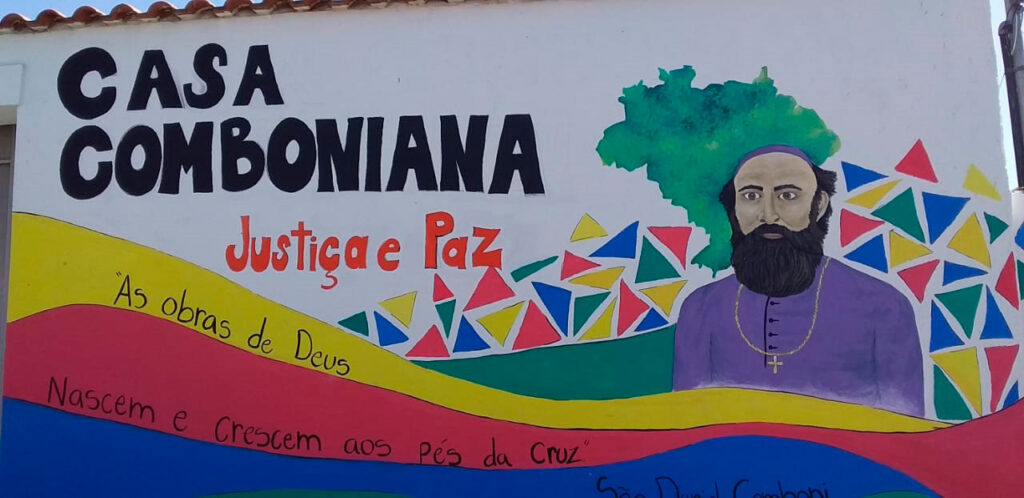
Today’s challenges remind me of those of Comboni. They are not the same. Of course, in Comboni’s time they were much more difficult. The desert crossing, the various diseases, the fevers, the broken arm that had to be broken again to put it back in place (I shudder just to think of it), etc.
But now we are also living in a time of desert. The expectation of the trip to Africa, the sending of documents, the pandemic, the wait for the vaccine, the request for renewal of documents and the wait again. All for a greater cause, which is Jesus.
But through it all, I can’t complain. I was welcomed with great affection and the work is producing results.
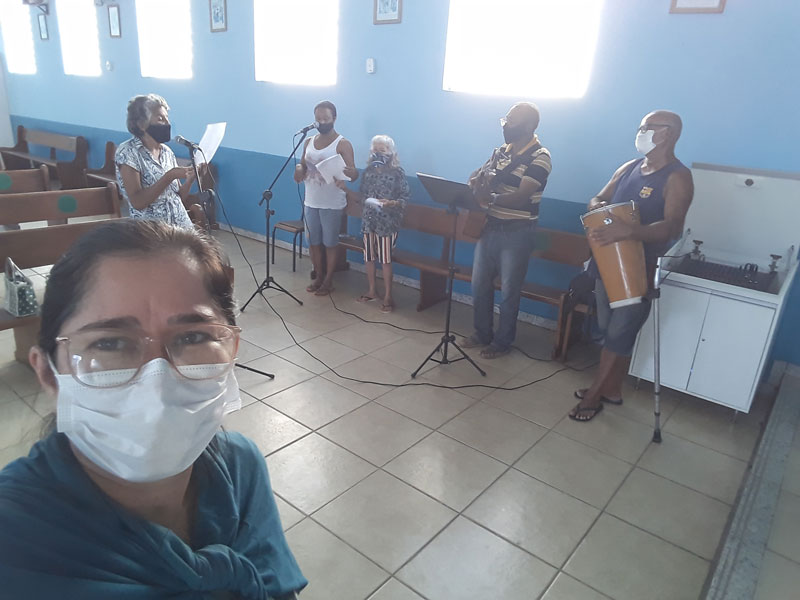
After a stop for life: because the virus does not mess around and we value the welfare and life of our people, the people of God. Little by little, and following all the WHO guidelines, we are resuming some pastoral work.
We have restarted the adult and children’s choir, but with only two members at a time. (photos of the rehearsals).
The catechesis is done online to preserve the health of the children. The participation is very good, even in spite of some difficulties such as the lack of Internet in some families. So that these children are not harmed, we have chosen to visit them without entering their homes and without them going out. It is a catechesis from the door of the house, in the street, without physical contact, without proximity.
Group of catechists from the community of Nossa Senhora Aparecida (Ipê Amarillo neighborhood).
We have resumed the liturgical formation with the team of the community, since there are few people, we do it in person without forgetting the care.
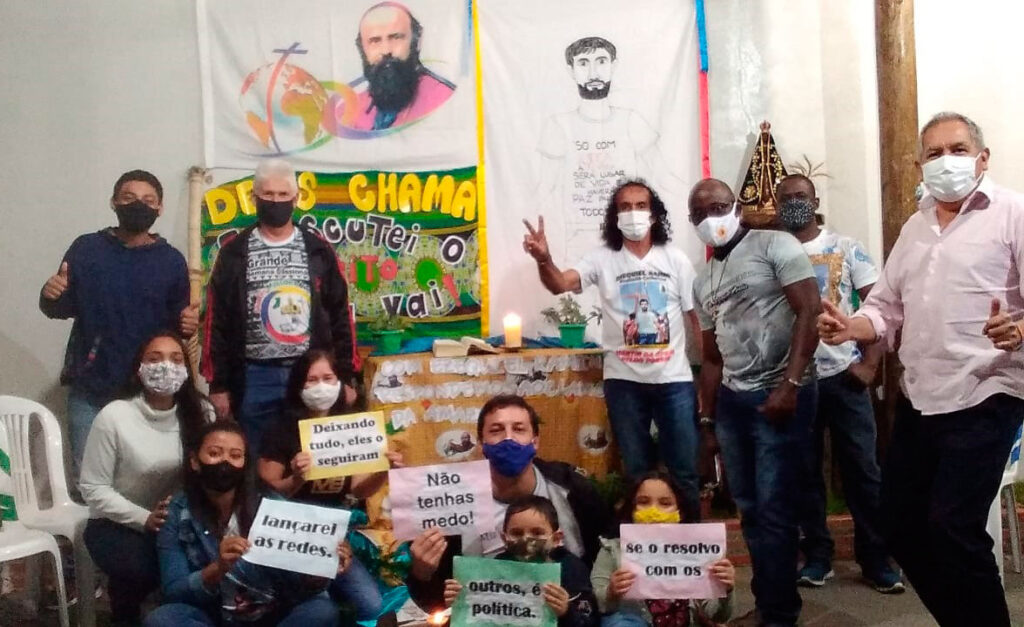
We participated in the triduum of the martyr Fr. Ezequiel Ramín, together with the parish and the parish group of Comboni spirituality.
We have made and participated in some videoconferences.
In the coming days we will celebrate the national week of the family in the parish, the catechesis meeting with the confirmation group, in addition to the existing works.
A few days ago I discovered a new hidden talent (laughs), I discovered myself as a wall painter. Together with the Camey family from Guatemala, we painted the façade of the Comboni House. Modesty aside, it looks beautiful!
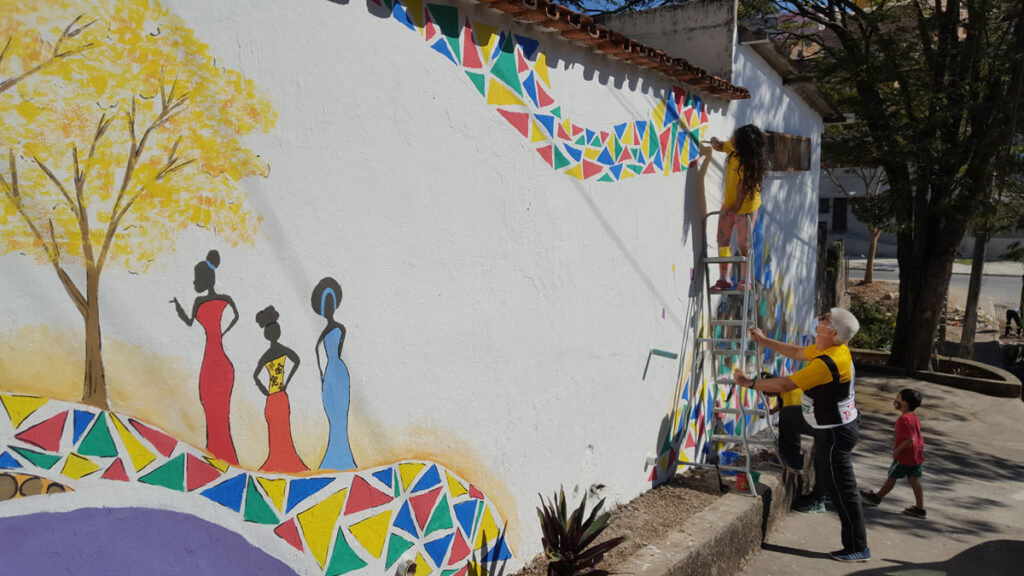
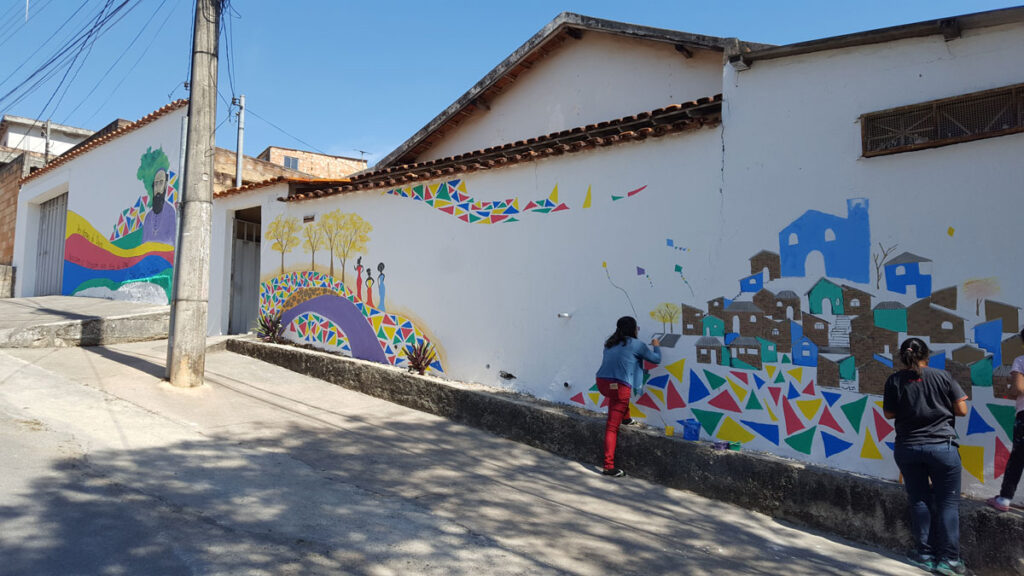
In social work we are together registering and distributing baskets of basic commodities. This is a collaboration with the diocese. These baskets come from the fine that the mining company Vale paid for the Brumadinho disaster.
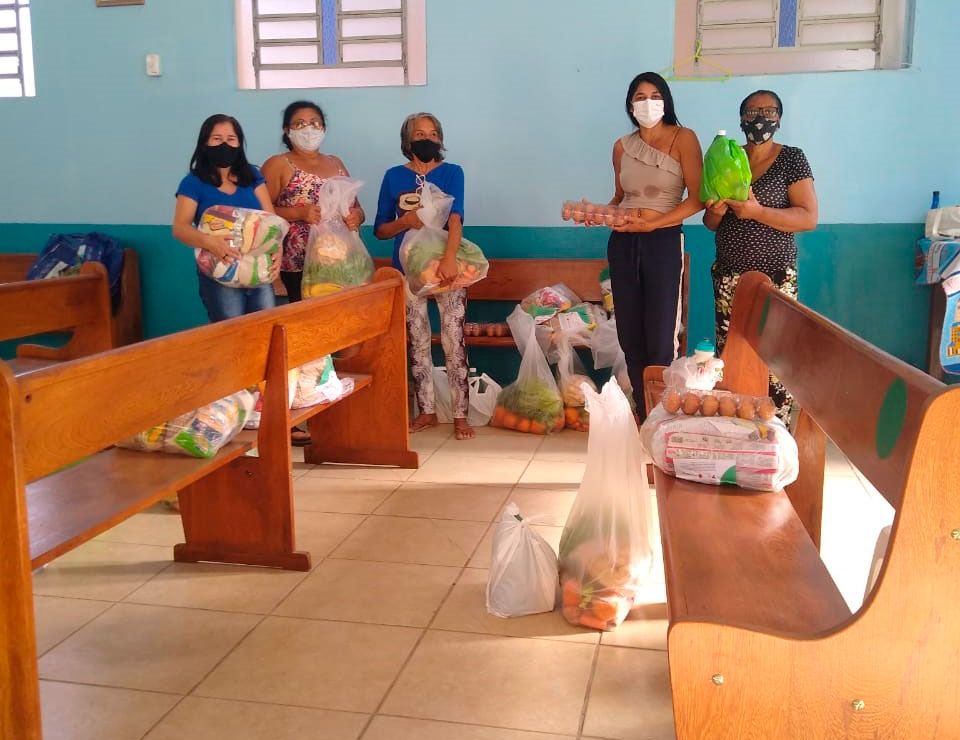
And so we continue the mission in the way the Lord presents it to us.
It is rewarding and I can say with certainty that I will miss Ipê Amarelo, its people and especially the children.
Maria Regimar, CLM at the Mission House of Santa Teresinha, in Ipê Amarelo, Contagem/MG. Brazil.
We continue this series with Fr. Jaime Calvera, a Comboni Missionary who arrived in South Africa for the first time in 1985, a country to which he dedicated his work until he was recalled to Spain. In this interview he tells us with special enthusiasm about his experiences in projects such as the Mamelodi choir, which came to fruition despite the harsh social context of the country, and also introduces us to the Ubuntu philosophy.
(Interview in Spanish)